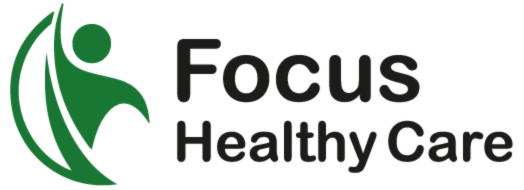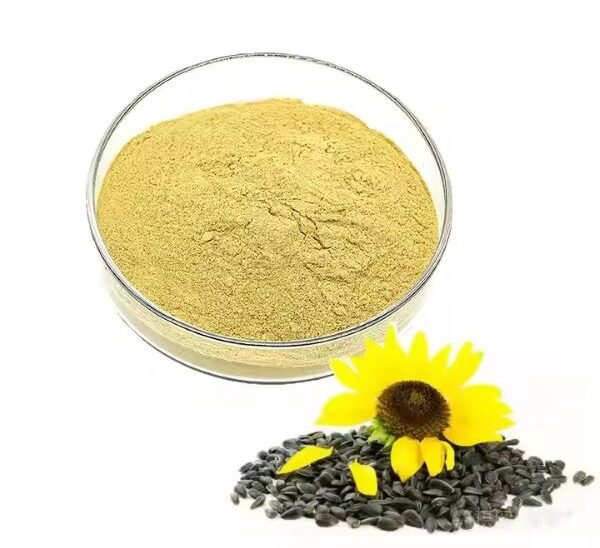Lecithin is a substance that occurs naturally in the cells of all living organisms, but sunflower lecithin has emerged as an ingredient for its health properties and because it can be used for many other purposes. Particularly in foods, cosmetics, and dietary supplements sunflower lecithin has become very common. But what is it,and how does that pertain to your health. This article will delve into the science, history, and health benefits of sunflower lecithin — and debunk some common misconceptions.
What is Sunflower Lecithin?
Sunflower lecithin in its natural emulsifier made from sunflower seeds. A fatty substance that serves to emulsify, that is mix ingredients (such as oil and water) which do not normally combine. It is extracted using cold pressing, very different to soy lecithin which often involves using chemical solvents. A favourite is boling however this method retains its nutrients thus keeping it popular among people wanting an all-natural replacement.
Historically, lecithin was first discovered in egg yolks in the mid-19th century. Over time, manufacturers found other plant-based sources of lecithin, such as soybeans and sunflowers. Explore the history of lecithin on Wikipedia. Learn more about the natural extraction process of sunflower lecithin on Verywell Health.
Read more: Bentonite Clay for Teeth: Benefits & How to Use Calcium Bentonite
Is Sunflower Lecithin Bad for You?
You might be wondering, “Is sunflower lecithin bad for you?” The short answer is no, but like any supplement, it’s important to use it in moderation.
Most people can safely use lecithin in the right quantities. These include essential fatty acids such as phospholipids — vital to the function of a cell’s membrane, and brain health in general. Moreover, since it is allergen-free with no soy or dairy, this makes it the perfect choice for those that have sensitive tummies. Read more about lecithin on Medical News Today.
However, some users have reported minor side effects, such as gastrointestinal discomfort, diarrhea, or nausea, when consuming high amounts. Check out the side effects of lecithin on Healthline. It’s always best to consult a healthcare professional if you’re considering adding the lecithin to your diet, especially if you have underlying health conditions. More about the safety of lecithin on Drugs.com.
Read more: 10 Health Benefits of Jasmine Tea You Need to Know
Sunflower Lecithin Benefits
So, why are so many people turning to sunflower lecithin? It turns out, there are quite a few benefits of Sunflower Lecithin:
1. Supports Heart Health
Sunflower lecithin contains healthy fats that help reduce cholesterol levels. Phosphatidylcholine, a major component of lecithin, plays a key role in breaking down fats and preventing plaque buildup in the arteries. Some studies suggest that lecithin can increase HDL (good cholesterol) and lower LDL (bad cholesterol) levels, reducing the risk of heart disease. Learn more about how lecithin impacts cholesterol on the National Institutes of Health (NIH).
2. Promotes Brain Function
Phosphatidylcholine, present in great amounts in sunflower lecithin, is another type of choline that protects cognitive function. A neurotransmitter that is vital for memory, learning, and brain health in general. Other research may even suggest that lecithin supplementation might be therapeutic for those who have neurological conditions such as Alzheimer’s disease. Read about benefits of sunflower lecihin on Alzheimer’s Research & Therapy.
3. Improves Digestion
If you have digestion problems, sunflower lecithin may assist. Its ability to emulsify helps break down fats so that digestion is smoother. Moreover, some research shows that lecithin may also aid overall gut health by promoting the development of mucus within the gut which can line and protect again digestive tract irritation and inflammation. Explore lecithin’s role in digestion on WebMD.
4. Supports Breastfeeding Mothers
Interestingly, sunflower lecithin has become a natural remedy for breastfeeding mothers. It is often recommended to help prevent blocked milk ducts, which can lead to mastitis, a painful infection. Learn more about using lecithin for breastfeeding from La Leche League International. Lecithin’s ability to emulsify fats helps keep breast milk flowing smoothly, reducing the chance of blockages.
5. Skin Health and Hydration
You’ll find the lecithin as an ingredient in many skincare products. It helps restore moisture in the skin, making it ideal for people with dry or sensitive skin. Its ability to strengthen cell membranes also promotes skin elasticity, which can reduce signs of aging. Read about Sunflower Lecithin Benefits in skincare on Paula’s Choice.
How to Use Sunflower Lecithin
Sunflower lecithin comes in several forms, which include liquid, granules and capsules. The most common uses include:
- Food additive: You can find it in chocolate, baked goods, and salad dressings, where it helps create a smoother texture.
- Supplements: Sunflower lecithin is composed of the desired fatty acids you can take as a whole dietary supplement for improving heart function and cognitive ability.
- Topical application: Lecithin is often included in creams, lotions, and serums to enhance skin hydration.
If you do use the herb, dosages should be kept to that suggested amount in order to avoid any unwanted side effects. Most people will find that 1-2 tablespoons per day is plenty. If you’re pregnant, breastfeeding, or have a medical condition, consult your doctor on the National Library of Medicine before starting any supplement regimen.
Side Effects:
Allergies: This is important for anyone with a sunflower seed allergy. Symptoms may range from itching or swelling to hives.
Digestive Issues: This might come in the form of explosive diarrhea, bloating and stomach cramps in a small percentage of people that takes large amounts of sunflower lecithin.
Blood Thinners: Sunflower lecithin may be a blood thinner and some people on anticoagulant medications may need to avoid sunflower lecithin.
Hormonal: Since Lecithin is a phospholipid product, it might affect our hormonal levels For the most part, it is not an issue but consult a healthcare professional if you have hormone-sensitive health conditions.
Precautions:
Consult Healthcare Provider: Before adding the herb to diet If you are pregnant, breastfeeding or have any existing health conditions, consult with a healthcare professional.
Monitor for Allergies: Be cautious, and avoid sunflower lecithin if you have a known allergy to sunflowers or similar plantsMonitor for Allergies
Measurable Dosage: Begin with a smaller dose of the to determine how your body responds, and then increase volume from there.
Medication Interactions: Similarly, if you take any medications, especially anticoagulants or others that effect the levels of hormones in your body, talk to your health care provider about possible interactions.
Quality of Product: Opt for high quality sunflower lecithin goods made by reputable manufacturers to protect yourself from impurities and make sure safety.
Conclusion: Is Sunflower Lecithin Right for You?
Sunflower lecithin is a powerful supplement which has several positive health effects. If you want to help your heart, beef up your brainpower or promote vibrant skin hydration, it is the answer – straight from nature. Provided it is taken responsibly, it is a safe and healthy addition to almost any dietary regiment.
However, as with any supplement, it’s important to do your own research and consult a healthcare professional on Mayo Clinic to determine if sunflower lecithin is right for your needs.
Read more: 8 Amazing Benefits of Caraway Seeds Essential Oil
Read more: 8 Amazing Benefits of German Chamomile Essential Oil
Refferance:
- Healthline: Lecithin Benefits and Uses
- Verywell Health: Lecithin Extraction Process
- Medical News Today: Lecithin Overview
- WebMD: Lecithin’s Role in Digestion
- National Institutes of Health (NIH): Lecithin and Heart Health
- La Leche League International: Lecithin for Breastfeeding
- Paula’s Choice: Lecithin in Skincare
- Mayo Clinic: Lecithin
- Drugs.com: Safety of Lecithin
- National Library of Medicine: Consult a Doctor

